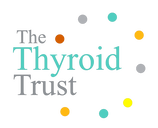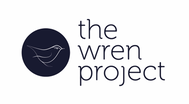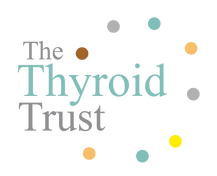Professor Margaret Rayman, a patient and a scientist.

Professor Margaret Rayman is a world leader in nutritional science who set up and still helps to run the UK’s only MSc in Nutritional Medicine at the University of Surrey. Her research interests particularly include thyroid disease and the role of the micronutrients, iodine, selenium and iron. She also has hypothyroidism, for which she takes levothyroxine.
Margaret tells us that she has not found her hypothyroidism to be a problem. However, she notes that other countries routinely dispense Levothyroxine (T4) tablets in doses of 87.5 mcg, which must be more convenient for patients like her, whose conditions require a finely tuned dose.
Margaret has achieved a huge amount in her career and has a stellar reputation amongst her peers and the wider scientific community. She has kindly advised us of a number of useful research papers, referenced at the end of this article. For your convenience we have loosely summarised the key findings below.
It is understood that some patients continue to have symptoms of hypothyroidism despite seeming to have good thyroid blood-test results. Research so far is inconclusive as to why this is - and it is likely that there are multiple causes, not just one.
Separately, there is strong evidence that selenium, iron and iodine are all important factors for good thyroid hormone function with some suggestive evidence for a role for vitamin D. Hypothyroid patients are probably being treated with levothyroxine which contains its own iodine. However, many patients have some residual thyroid function so will still require some iodine from their diet.
Selenium is important for thyroid function as it is contained in enzymes that convert thyroxine to the active form of thyroid hormone. It is also a component of enzymes that protect the thyroid from damage. Seafood, kidney and liver are good sources. Although Brazil nuts are an excellent source, they can be extremely high in selenium and so it is possible to overdose.
Iron (in the enzyme thyroid peroxidase) is also required to make the thyroid hormones. A Finnish endocrinologist established that levothyroxine replacement (for hypothyroidism) works better if iron levels are optimal. Low serum ferritin is a sign that iron levels are low, as ferritin is the storage form of iron. Interestingly supplementation with thyroid hormones can also improve patients’ iron levels.
Some research points to the likelihood of one or more genetic causes, making it difficult for some patients to convert and transport thyroid hormones normally. However, the evidence for this from human studies that have treated all patients equally, regardless of their genotype, is not robust enough yet to be accepted by clinicians.
Margaret and Sarah were part of a stand, “In Your Element”, at the Royal Society Summer Science Exhibition in July 2018, helping to raise public awareness of the importance of the nutritional side of the Periodic Table. Both are committed to helping the public learn about new nutritional-science findings.
We were thrilled that Margaret, along with her colleague, Dr Sarah Bath, very kindly gave a talk on nutrition and thyroid disease at our Information Event at Crown Court Church on 23rd November 2020.
Margaret tells us that she has not found her hypothyroidism to be a problem. However, she notes that other countries routinely dispense Levothyroxine (T4) tablets in doses of 87.5 mcg, which must be more convenient for patients like her, whose conditions require a finely tuned dose.
Margaret has achieved a huge amount in her career and has a stellar reputation amongst her peers and the wider scientific community. She has kindly advised us of a number of useful research papers, referenced at the end of this article. For your convenience we have loosely summarised the key findings below.
It is understood that some patients continue to have symptoms of hypothyroidism despite seeming to have good thyroid blood-test results. Research so far is inconclusive as to why this is - and it is likely that there are multiple causes, not just one.
Separately, there is strong evidence that selenium, iron and iodine are all important factors for good thyroid hormone function with some suggestive evidence for a role for vitamin D. Hypothyroid patients are probably being treated with levothyroxine which contains its own iodine. However, many patients have some residual thyroid function so will still require some iodine from their diet.
Selenium is important for thyroid function as it is contained in enzymes that convert thyroxine to the active form of thyroid hormone. It is also a component of enzymes that protect the thyroid from damage. Seafood, kidney and liver are good sources. Although Brazil nuts are an excellent source, they can be extremely high in selenium and so it is possible to overdose.
Iron (in the enzyme thyroid peroxidase) is also required to make the thyroid hormones. A Finnish endocrinologist established that levothyroxine replacement (for hypothyroidism) works better if iron levels are optimal. Low serum ferritin is a sign that iron levels are low, as ferritin is the storage form of iron. Interestingly supplementation with thyroid hormones can also improve patients’ iron levels.
Some research points to the likelihood of one or more genetic causes, making it difficult for some patients to convert and transport thyroid hormones normally. However, the evidence for this from human studies that have treated all patients equally, regardless of their genotype, is not robust enough yet to be accepted by clinicians.
Margaret and Sarah were part of a stand, “In Your Element”, at the Royal Society Summer Science Exhibition in July 2018, helping to raise public awareness of the importance of the nutritional side of the Periodic Table. Both are committed to helping the public learn about new nutritional-science findings.
We were thrilled that Margaret, along with her colleague, Dr Sarah Bath, very kindly gave a talk on nutrition and thyroid disease at our Information Event at Crown Court Church on 23rd November 2020.
References
Rayman MP. Multiple nutritional factors and thyroid disease, with particular reference to autoimmune thyroid disease. Proceedings of the Nutrition Society, 2019; 78: 34–44.
Jo S et al. Type 2 deiodinase polymorphism causes ER stress and hypothyroidism in the brain. The Journal of Clinical Investigation, 2019; 129:230-245.
Hernandez A. Cognitive function in hypothyroidism: what is that deiodinase again? The Journal of Clinical Investigation, 2019; 129:55-57.
Carlé A et al. Hypothyroid Patients Encoding Combined MCT10 and DIO2 Gene Polymorphisms May Prefer L-T3 + L-T4 Combination Tratment – Data Using a Blind, Randomized, Clinical Study. European Thyroid Journal, 2017; 6:143–151.
Jo S et al. Type 2 deiodinase polymorphism causes ER stress and hypothyroidism in the brain. The Journal of Clinical Investigation, 2019; 129:230-245.
Hernandez A. Cognitive function in hypothyroidism: what is that deiodinase again? The Journal of Clinical Investigation, 2019; 129:55-57.
Carlé A et al. Hypothyroid Patients Encoding Combined MCT10 and DIO2 Gene Polymorphisms May Prefer L-T3 + L-T4 Combination Tratment – Data Using a Blind, Randomized, Clinical Study. European Thyroid Journal, 2017; 6:143–151.









